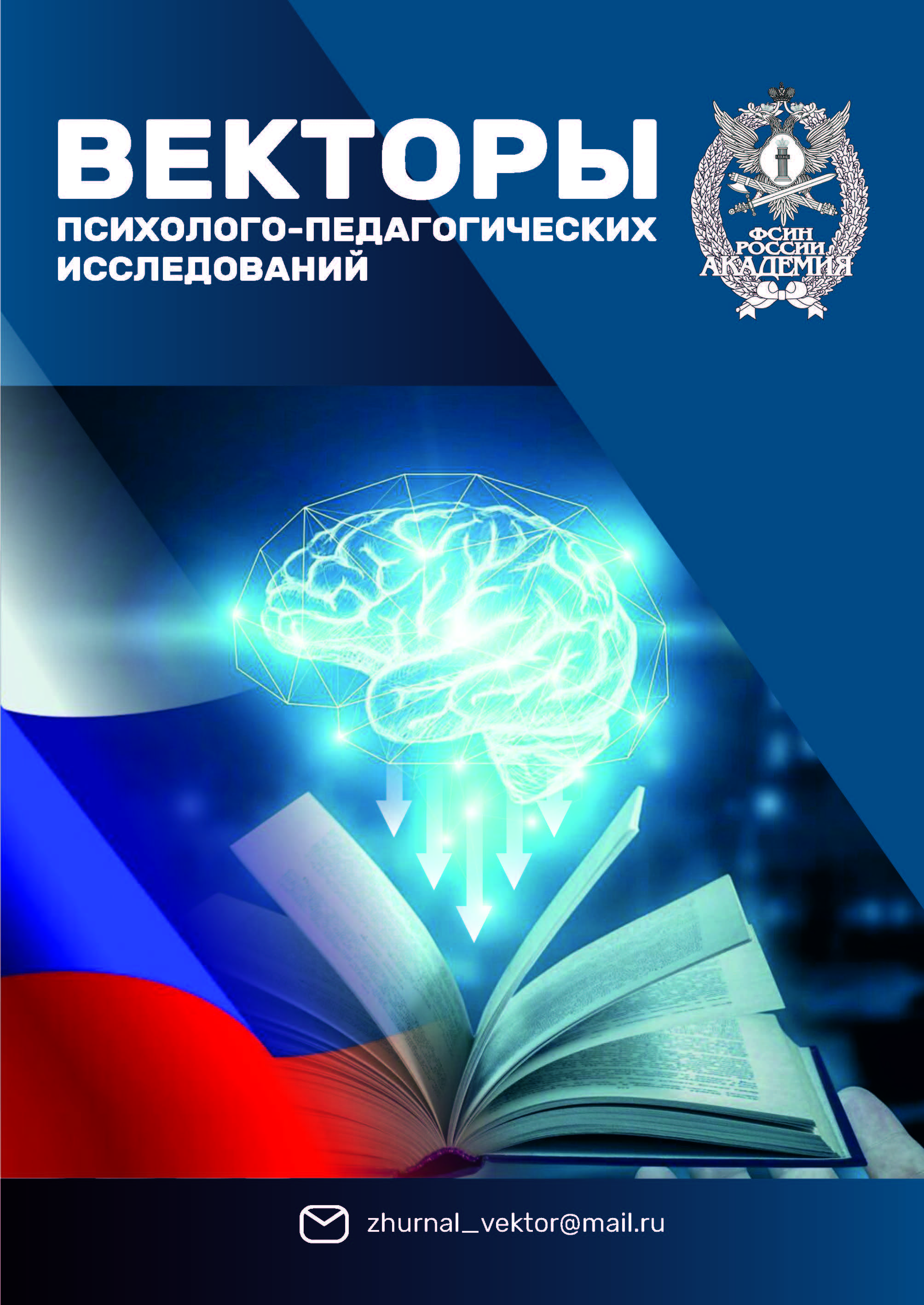Ryazan
UDC 316.624
According to the information of the FPS of Russia, in 2023 maladaptive financial behavior, in particular, the inability to repay debt obligations to credit institutions, became the second most common cause of suicide among employees of the penal system. Moreover, as a rule, borrowed funds in these cases were attracted not to solve vital tasks, but to meet short-term, non-repayable needs. Moreover, in most cases, a compulsive purchase involving borrowed funds was made repeatedly, which indicates the development of a certain stereotype of behavior. The maladaptive financial behavior can be considered as a form of an addictive process. The purpose of this study was to identify the role of the addictive component in the formation and aggravation of maladaptive financial attitudes among employees of the penal system. The article describes the features of the course of credit addiction identified in the course of empirical research as a type of non-chemical dependence; it is shown that the financial behavior of persons who often resort to borrowing funds is not always a form of addictive behavior; the universality of the mechanisms of development of addictive processes is proved, which determines the possibility of credit addiction flowing into other forms of addiction.
addictive behavior, credit addiction, credit dependence, maladaptive financial behavior, penal system
1. Gridneva, A. A. & Kovalenko, E. S. 2023, ‘Psychocorrection of maladaptive financial attitudes of employees of the penal system of the Russian Federation as factors in the formation of creditomania’, Bulletin of the penal system, iss. 5, pp. 26–36, doi.org/10.51522/2307-0382- 2023-252-5-26-36.
2. Korolenko, Ts. P. & Donskikh, T. A. 1990, Seven paths to disaster: destructive behavior in the modern world, Nauka, Novosibirsk.
3. Shabanov, P. D., Lebedev, A. A., Meshcherov, Sh. K., Pavlenko, V. P. & Streltsov, V. F. 2003, ‘The role of dopamine in the formation of emotional behavior’, Reviews of clinical pharmacology and drug therapy’, vol. 2, iss. 1, pp. 23–45.
4. Ethan, S., Bromberg, M., Masayuki, M. & Okihide, H. 2010, ‘Dopamine in motivational control: rewarding, aversive, and alerting', Neuron, iss. 68, pp. 815–834.
5. Westbrook, A. & Todd, S. Braver 2016, ‘Dopamine does double duty in motivating cognitive effort', Neuron, iss. 89, pp. 695–710.
6. Ovchinnikov, A. A., Sultanova, A. N., Sycheva, T. Yu. & Neustroeva, A. Yu. 2017, ‘The study of addictive aspects of credit-dependent behavior’, Siberian Bulletin of psychiatry and narcology, iss. 2(95), pp. 48–53.
7. Maleychuk, G. I. 2012, ‘Features of psychotherapeutic work with clients with a dependent personality structure’, Journal of Practical Psychology and Psychoanalysis, iss. 2.








